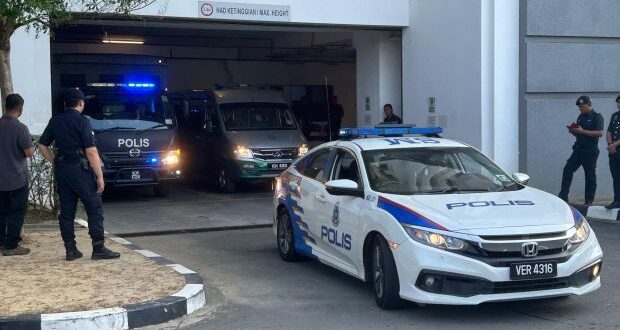KOTA KINABALU: The 14 suspects involved in one of Sabah’s largest drug cartel rings have claimed trial to being a part of an organised crime group at the High Court here, on Friday (March 22).
The suspects from “Geng Upik” comprising a Datuk and two policemen, among others, pleaded not guilty when brought before Judge Datuk Ismail Brahim.
They were charged separately under Section 130v (1) of the Penal Code (Act 574).
The offence carried a prison sentence of not less than five years and not more than 20 years upon conviction.
The suspects were Mohd Fikrie Isme, 28, Pakat Sabah Malaysia patron Datuk Maslan Sani, 41; businessman Nelson Yee Yen Chung; former Tawau CID officer Insp Rahman Buriin, 44; and General Operations Force cop Sjn Jaisalfian Jaineh @ Zaini, 45.
ALSO READ: 14th alleged member of Geng Upik charged in Sabah drug cartel case
Mohd Fikrie who was currently serving a year’s jail sentence till 2025 (since Dec 9, 2023) at the Simpang Renggam Behavioural Rehabilitation Centre in Johor Baru, was the latest to be charged in the Sessions Court earlier on Friday morning.
The others were Mohd Fauzie Rablin, 33; Shahlan Shah Abdul Samad, 37; Mohd Faridzul Asmahadi, 31; Fazrul Bahar, 32; Alkan Abraham, 35; Mazlan Mahmud, 41; Mahathir Jibarail, 49, Norsyafilah Pawawoi, 28, a convict who was undergoing a 12-year jail sentence since 2018 for drug dealing and Zulkahar Dusing, 29, who had been detained at the Tawau detention centre in 2022 for a drug related case.
All the accused except for Insp Rahman, Zulkahar Dusin and Mohd Fikrie were represented.
ALSO READ: Drug cartel charge widens
Their cases were transferred from the Sessions Court to the High Court from the Sessions Court earlier in the morning.
Ismail fixed five mention dates for the accused – March 27, April 2, April 4, April 8 and April 17, before five different High Courts.
The court took an hour to complete reading the charges to all the accused individually and the security was tighter this time.
All who wanted to enter the courtroom were required to have their bags checked and scanned for security reasons.
Every accused was only allowed one family member to enter the courtroom while all handphones were not allowed to be taken out at any time during mention in the courtroom.
 BeritaKini.biz Berita Viral Terkini di Malaysia
BeritaKini.biz Berita Viral Terkini di Malaysia





